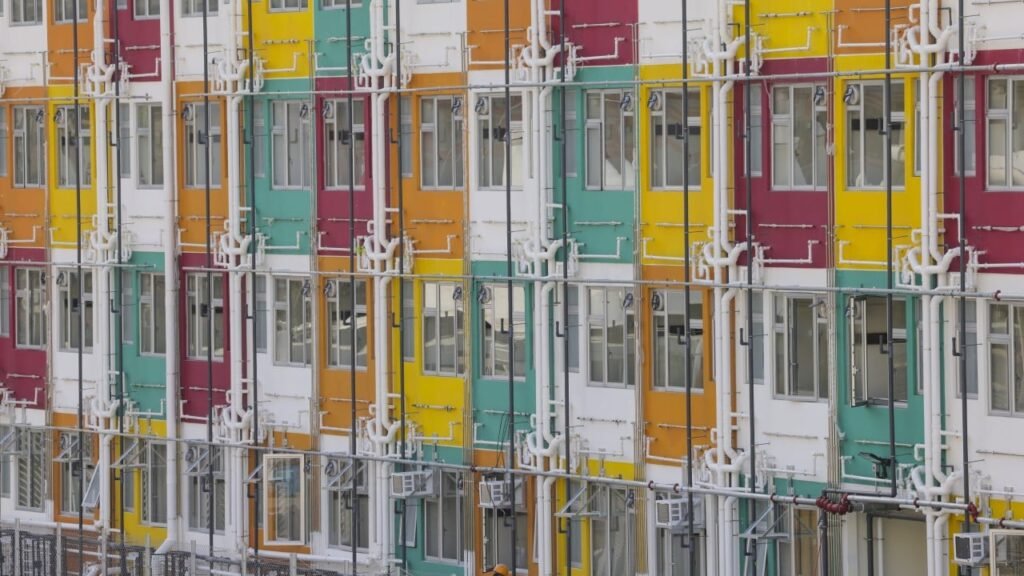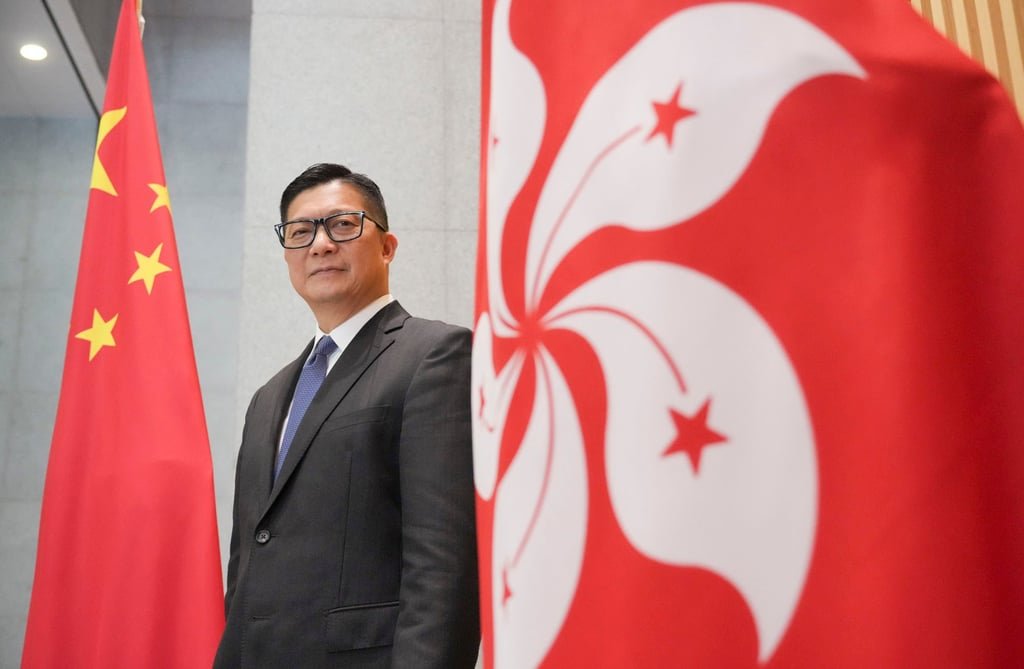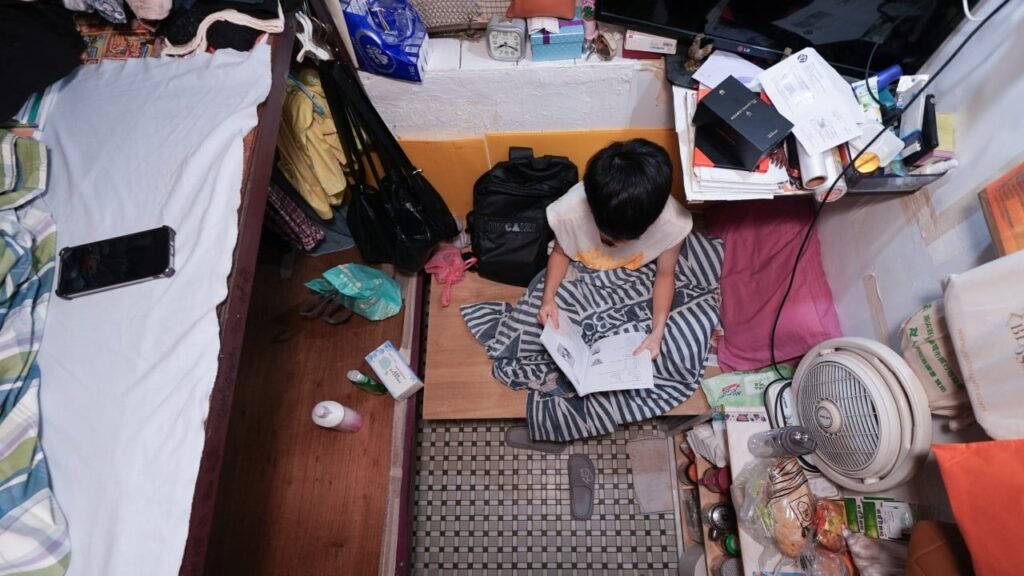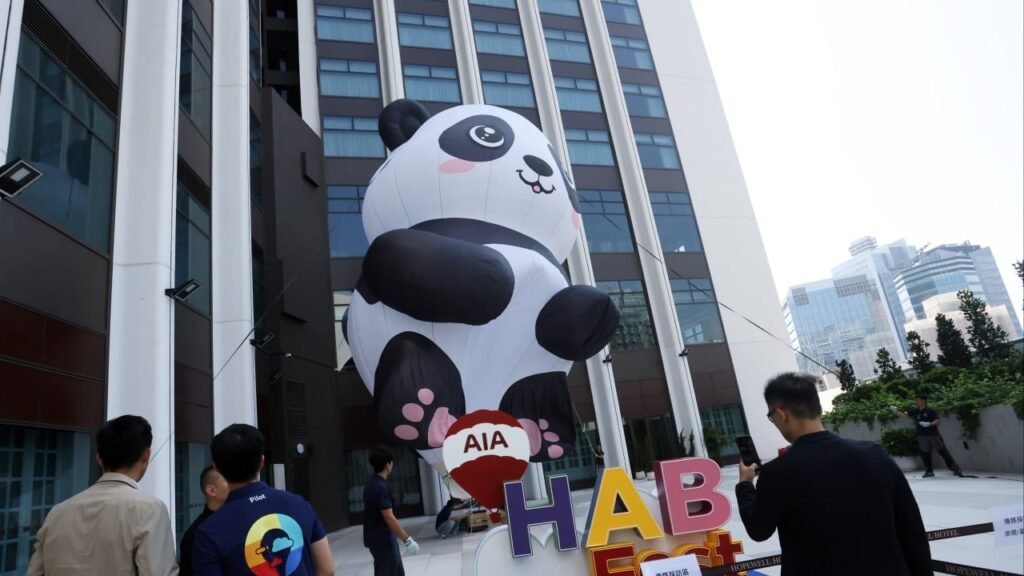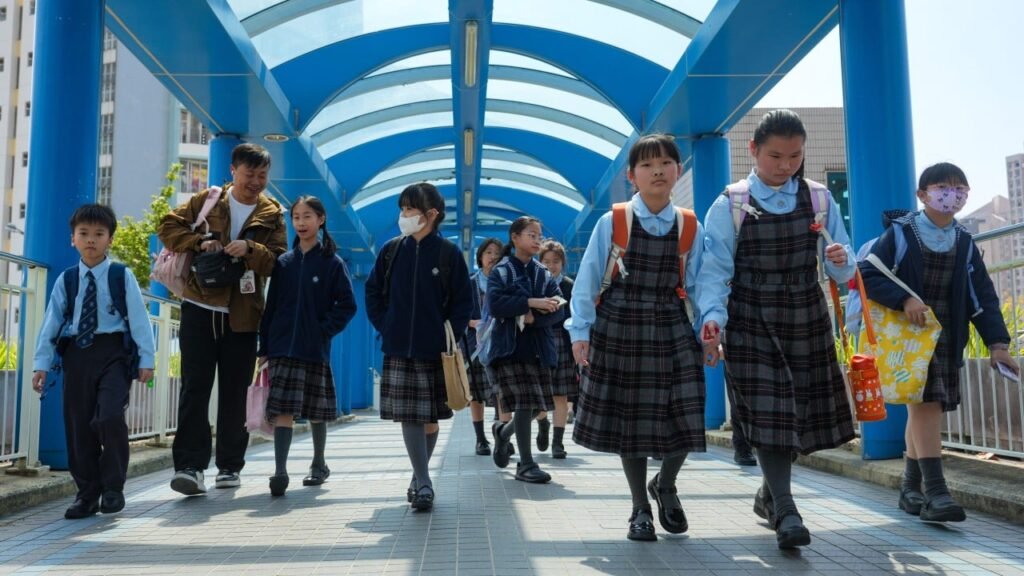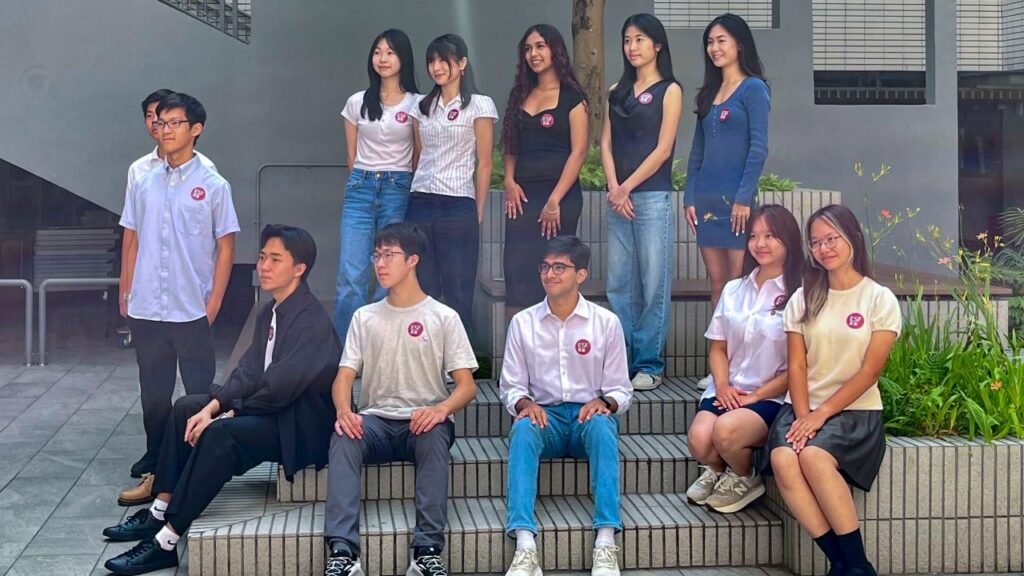More than a year after implementing the first phase of the single-use plastics ban, Hong Kong restaurateurs are lamenting the lack of suitable alternative materials. As the city’s problem with plastic waste persists, the government can learn from successful international case studies and accelerate the adoption of proper plastic alternatives to achieve a plastic-free future.
—
The implementation of a two-phase ban on single-use plastics in Hong Kong has taken a hit, as the city struggles to find alternatives.
Last month, Secretary for the Environment and Ecology Tse Chin-wan said on Commercial Radio that the government is looking to launch a trial campaign with selected restaurants within two months to test alternative products and provide feedback to suppliers for improvement.
“We will implement the second phase of the legislation only when the alternative product technology is more mature,” Tse told iCable in June. “It is difficult to require everyone to use their own utensils when buying take-away food, we need to find suitable alternatives before we continue with phase two,” he added.
Two-Phase Ban
The Legislative Council passed the Product Eco-responsibility (Amendment) Bill for regulating disposable plastic tableware and other plastic products in October 2023.
The first phase prohibits the sale or supply of styrofoam tableware, disposable plastic tableware such as straws, stirrers, cutlery, and plates, as well as the supply of cups, cup lids, food containers, and food container lids to dine-in and take-out customers in catering establishments. In the second phase, the supply and sale of all of the above plastic tableware in Hong Kong will be forbidden.
At the same time, hotels and guesthouses are banned from providing free disposable toiletries and grooming products (including rubber-handled toothbrushes, toothpaste, shower caps, razors, nail files, combs, and any liquid products stored in disposable plastic containers), as well as free disposable water in plastic bottles in rooms. The second phase will further prohibit the sale and free supply of multipack rings, table cloths, and plastic stemmed dental floss, and the distribution of free earplugs.
The manufacturing, supply and sale of oxidizable biodegradable plastic products – plastics that cannot be completely decomposed – have also been prohibited since the first phase was implemented in April 2024.
Businesses failing to comply with the regulation will be issued a notice and fined $2,000 if they have not taken action within 21 days from the notice. Repeated offences may result in fines of up to HK$100,000.

More than 19% of the 3.97 million tonnes of municipal solid waste disposed of at Hong Kong’s landfills in 2023 was plastic waste, a 10.5% decrease from the year prior, according to Environmental Protection Department (EPD) figures. Meanwhile, the quantity of plastic recycled locally rose from 119,900 tonnes in 2022 to 126,600 tonnes in 2023 – but still represented only 6.5% of the total waste.
Other Initiatives
To counter the rising plastic problem in the city, the EPD in 2021 also rolled out a Reverse Vending Machine pilot scheme for collecting plastic beverage containers, which was subsequently expanded to 120 machines scattered across all 18 Hong Kong districts. The machines offer a HK$0.10 rebate for each plastic beverage container returned. Customers need to register an account, and can return a maximum of 30 containers per day.
“The machine is effective and does not require a huge monetary incentive. The refund of 10 cents for each plastic bottle is already attractive enough for the public to be willing to recycle,” Tse said in February.
As of last month, the scheme had collected 179 million containers, which are sent to local recyclers, saving more than 6.7 million kilograms of carbon emission, according to EPD data.
However, some critics have argued that the incentive is too low. According to Robert Kelman, Director at Reloop Pacific, an international non-profit that tackles packaging waste throughout the Pacific, the HK$0.10 rebate – the lowest in the world for such a program – is “virtually meaningless” to most Hong Kong consumers. He further argued that the low number of plastic bottles received at the recycling centres is disincentivizing recycling companies to invest in the scheme.
For Kelman, a scheme cannot succeed unless it is both convenient to consumers and offers an adequate refund value.
“I’m not sure which studies Tse was referring to when he said the rebate of 10 HK cents (1.3 US cents) was ‘attractive enough’ after lawmakers raised doubts about the effectiveness of such a rebate,” said Edwin Lau Che-feng, Executive Director of local environmental organization Green Earth. “Why not use a deposit approach in light of successful cases around the world, some of which have achieved a recovery rate of more than 90 per cent?”
Lau was referring to so-called Deposit Refund Schemes (DRSs), which apply an initial deposit, or “tax”, on the purchase, which is then returned to the consumer upon proper recycling.
More than 40 countries around the world have implemented DRSs. Slovakia, for example, requires consumers to pay a deposit of €0.15 (HK$1.37) for packaged beverages. The scheme, launched in 2022, resulted in a recovery rate of 70% in the first year. Similarly, Germany imposes deposits on glass and plastic beverage containers ranging between €0.08 and €0.25 (HK$0.73-2.28) and in 2022, it was able to achieve a 98.4% return rate.
“The authorities should realise that had they taken the deposit approach, coupled with a higher deposit value than the current rebate of 10 HK cents, producers, with retailers’ support, would have no trouble reaching a recovery rate higher than the suggested initial targets of 10 per cent for drink cartons and 30 per cent for plastic bottles,” said Lau.

 You will find more infographics at Statista
You will find more infographics at Statista
You might also like: 3 Waste Management Solutions from Around the World
Plastic-Free Matters
Plastics take 400 years to decompose – and even then, they do not fully disappear but rather break down into tiny particles known as microplastics. According to Greenpeace East Asia, 97% of Hong Kong’s riverine waste is plastic, of which more than 70% is food, logistics and beverage packaging as well as disposable tableware.
In 2021, Greenpeace found microplastics in Hong Kong’s countryside streams for the first time, and last year, it detected microplastics in the feces of countryside mammals.

“Country streams are at the front end of the entire water cycle. The fact that they are contaminated by microplastics is a major warning sign that plastic pollution in urban rivers and oceans may be even more serious,” said Tam Wing-lam, the Greenpeace’s Project Director. She warned that microplastics can contaminate the water system, threatening public health.
Christelle Not, Senior Lecturer of Department of Earth Sciences in University of Hong Kong, said Greenpeace’s findings demonstrated that wildlife can still take up microplastics from the environment even when they are far away from urban areas and human activities.
Microplastics carry harmful additives and toxins that can damage the nervous, immune and endocrine systems when they accumulate in the food chain and enter the human body. Exposure to plastics and microplastics is linked to chronic diseases such as diabetes, developmental disorder, cancers, birth defects, and endocrine disruption.
Plastic is also detrimental to animals. Sea animals like turtles often mistake plastic for food, but their bodies are unable to digest it. They can become entangled, leading to injuries and even death.
A research team at the Hong Kong University of Science and Technology (HKUST) found that micro beads, manufactured micro plastics used in products ranging from facial scrubs to toothpastes, ending up in the digestive tracts of fish and other marine creatures can affect their growth and development.
“Despite all the adverse impacts these minute plastic pollutants have on the marine ecosystems, they are still being used in many personal care products around the world – including here in Hong Kong,” said Karen Chan, Assistant Professor from the Division of Life Science at HKUST and study lead.

Finding Alternatives
The most common plastic substitutes in Hong Kong include paper, bamboo, wood, and plant-based fibers such as wood pulp, grass pulp, and bagasse. Among these, paper and bagasse are the most widely used in both tableware and daily accessories due to their eco-friendliness and practicality.
While considered more eco-friendly than plastic, paper packaging manufacturing is still associated with carbon dioxide emissions and extensive water usage. According to local environmental NGO Friends of the Earth, producing one tonne of paper generates approximately 950 kilograms of carbon dioxide and requires 2,700 litres of water. Still, contrary to plastic, paper is a natural, biological, and in most cases renewable material, making it a better alternative.
The Hong Kong Consumer Council also reported in 2022 that perfluorinated and polyfluoroalkyl substances (PFAS) were detected in 23 samples of bagasse-based vegetable fibre tableware, with some paper drinking straws exceeding the European Union’s safe limits.
PFAS – better known as forever chemicals – are synthetic chemicals used in the manufacture of heat-, oil-, and water-resistant coatings for products like nonstick cookware or waterproof clothes. They are associated with increased risk of certain cancers, including prostate, kidney, and testicular cancers, and found to reduce the body’s immune system’s ability to fight off infections.
In 2023, researchers from the University of Antwerp in Belgium who examined 39 different types of straws (paper, glass, bamboo, stainless steel, plastic) discovered that PFAS was present in 90% of paper straws and 80% of bamboo straws. 75% of all tested plastic straws also contained PFAS.

The cost of non-plastic tableware is also one of the factors that restaurants need to take into account. According to the Environmental Protection Department, the price difference between the lowest-priced disposable plastic product option and its lowest-priced alternative is still relatively large, ranging from HK$0.12 to HK$0.68.
However, costs are expected to decrease as demand, and consequently production, ramp up, said Simon Wong Ka-wo, President of the Hong Kong Federation of Restaurants and Related Trades.
Some restaurant owners or customers were also unhappy about the quality of alternative options. “If you’re walking home with your takeaway order in this box, that’d be fine. But if you have to drive, then that wouldn’t work,” the owner of a Shanghainese restaurant, who is surnamed Lee, told Hong Kong Free Press last April.
“It literally takes two sips [before] the [paper] straw starts getting soggy, and the forks don’t even work!” said one of his customers.
At the end of the day, neither recycling nor switching to biodegradable tableware is the best solution, environmentalists argue.
“Instead of placing our hopes in recycling and the use of degradable plastics, we should seek to avoid, reduce at source and reuse,” said Lau. “We must ditch our addiction to single-use plastics, slash plastic production at source and develop genuine plastic-free and harmless alternatives.”
Featured image: Wikimedia Commons.
💡How can I contribute to a more sustainable planet?
- 🗳️ Vote for climate action: Exercise your democratic rights by supporting candidates and policies that prioritize climate change mitigation and environmental protection. Stay informed with Earth.Org’s election coverage.
- 👣 Reduce your carbon footprint: Make conscious choices to reduce your carbon footprint. Opt for renewable energy sources, conserve energy at home, use public transportation or carpool, and embrace sustainable practices like recycling and composting.
- 💰 Support environmental organizations: Join forces with organizations like Earth.Org and its NGO partners, dedicated to educating the public on environmental issues and solutions, supporting conservation efforts, holding those responsible accountable, and advocating for effective environmental solutions. Your support can amplify their efforts and drive positive change.
- 🌱 Embrace sustainable habits: Make sustainable choices in your everyday life. Reduce single-use plastics, choose eco-friendly products, prioritize a plant-based diet and reduce meat consumption, and opt for sustainable fashion and transportation. Small changes can have a big impact.
- 💬 Be vocal, engage and educate others: Spread awareness about the climate crisis and the importance of environmental stewardship. Engage in conversations, share information, and inspire others to take action. Together, we can create a global movement for a sustainable future.
- 🪧 Stand with climate activists: Show your support for activists on the frontlines of climate action. Attend peaceful protests, rallies, and marches, or join online campaigns to raise awareness and demand policy changes. By amplifying their voices, you contribute to building a stronger movement for climate justice and a sustainable future.
For more actionable steps, visit our ‘What Can I do?‘ page.
This story is funded by readers like you
Our non-profit newsroom provides climate coverage free of charge and advertising. Your one-off or monthly donations play a crucial role in supporting our operations, expanding our reach, and maintaining our editorial independence.
About EO | Mission Statement | Impact & Reach | Write for us


